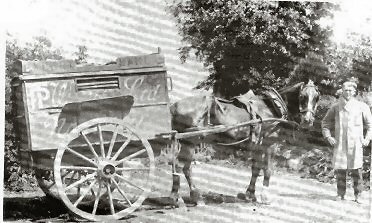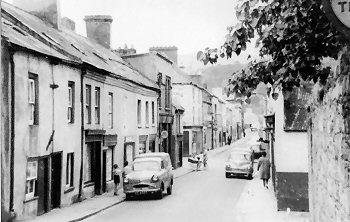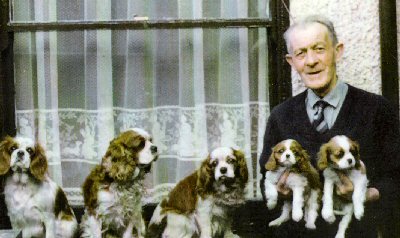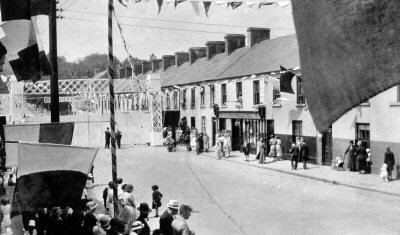All types and formations of rock hold a fascination for me. I don’t know why but it’s always been like that. Unusual, at least. Maybe a little crazy. I can’t help it. If I’m passing through a road or railway cutting, my eyes are drawn, trance-like, towards the recently exposed rock strata on each side. I skip quickly from one side to the other, for fear of missing the more exciting pattern. Friends call me ‘sad’, but honestly I’m happiest then.
I’ve got my own collection at home. Some samples have five hundred million year old fossils embedded in them. ‘Burgess Shale’, they’re called, after the area in the Rocky Mountains of British Columbia where they were first found. The earliest fossil animal records in existence. Five hundred million years! Can you take that in? I mean, that’s before people, before dinosaurs, before the first reptiles crawled out of the oceans on to land. It’s before there were any land plants, for goodness sake! I love to show them off, on those rare occasions when I get a chance.
Few people want to see them. There’s nothing more boring than a fanatic, I’ll grant you that. Still I think that people should give it a try. It’s history writ large. Not that rubbish about kings and queens, wars and conquests, political intrigue and cute-hoor chicanery. Real history. Four and a half billion years of rock history, on land, and under sea, and under both, in the mantle and in the Earth’s core. If rocks could talk, what a story they’d tell!
And so I found myself that fine summer afternoon in the abandoned quarry near Newry – alone. I prefer it that way. In social situations I am a magnet for all kinds of nutters…
Right in front of me there was a large pile of chiselled granite stones, almost hidden by the long grass sprouting up among and between them. All had letters and numbers finely and carefully scripted in red paint upon them. I’d seen this type of thing before. Archaeologists use such a code to identify what stones go where, when a monument is removed from one location to another.
‘Yeah, boy, those stones have a story to tell!’
Startled, I jumped. Was the voice inside my head? I wondered.
Glancing behind, I saw this wizened old guy with a weather-beaten face half hidden beneath a grimy cloth cap, perched somewhat askew on his seemingly bald head.
How had he crept up, soundless, on me like that? Was he real? Was he reading my thoughts? Just what is it about me to attract people like this?
I decided that if I didn’t speak he might simply go away again. Long and bitter experience had taught me that the worst thing to do was to give any kind of encouragement, however slight.
For his part, he appeared nonplussed, disdaining even to look in my direction. A battered pipe had materialized between his yellow teeth. There was a rude sucking sound. He made no attempt to fill it with tobacco. I was biting my tongue to prevent it from forming speech.
A minute passed – the length of an hour, I thought. The old guy hadn’t looked in my direction. Seemingly. I hadn’t dared to glance back again for fear he might take that as encouragement.
‘Och aye, and I’m the man to tell it!’
My eyes darted furtively round, seeking some means of early escape: any that would preserve my sense of self-dignity, that is, without appearing rude. He might be all right, I tried to reason, though the odds were heavily against it. I glanced skyward in the vain hope of salvation from a heavy shower of rain. It never rains when you want it to.
‘Windmill, be damned!’ he spat out.
Just walk away quickly without comment, I thought. That should do it. He ‘d be unlikely to pursue me.
– Windmill? I thought.
‘Yeah, windmill.’ I must have spoken aloud. I was furious with myself.
That’s done it, I thought. There’ll be no stopping him now. One word of encouragement would suffice. But still I held my peace.
‘Was me dumped them there!’ he offered – proudly, in my opinion.
He wanted prompting, anyone could see that, but there was no doubt that the story would come out, no matter what I said or did. I was vaguely interested now, recollecting some press story of a few years back. But I tried not to show it.
I allowed a full minute to pass before I spoke.
‘You wanna tell me?’
‘You police?’
‘Hardly!’ I laughed lightly.
‘Taxman? Council? Some kinda official?’
A five-second pause after each, awaiting confirmation or denial. I offered surly denial, non-verbal style. How dare he disturb my peace and solitude, without even a by-your-leave? When I spoke I injected irritation into my tone of voice.
‘No. I’m just me. Nobody.’ I took a deep breath.
‘I don’t really wanna know.’
This latter was delivered with studied finality. I hate other people’s secrets! Still I had a feeling it wouldn’t work.
‘You know how to keep your mouth shut?’
I almost laughed with irrepressible mockery. I would have, but I wasn’t confident that he would be quick enough to detect the irony in my voice. Rich, though. Would I have to insult him further?
‘I avoid people,’ I offered, as a compromise. A glint in his eye. Was he intrigued or offended? I didn’t care. He turned away. I didn’t want to give the impression that I was weird. I decided to qualify my remark.
‘I mean, I don’t talk a lot.’ This was my parting shot as I moved away.
‘It was illegal. ‘Conspiring to destroy an historical monument’.’
‘Conspiring’, no less! Not so dumb then! I decided to test him.
‘Why’d you do it?’
I was sorry as soon as I’d spoken. I reflected. That was seven times I’d spoken. Maybe thirty words – and thirty too many. I knew if I didn’t stop at once I’d be even more sorry shortly.
‘Money! What else is there?’
End of story. I had already guessed the rest. Nine-day wonder in the local press, five years ago. No more questions, I resolved.
‘Go on, take one! Nobody knows they’re here only me!’
The crafty old codger, I thought. Wants to make me guilty by association. Perhaps he’d been observing me for some time. Had he guessed my obsession? I’d put the old rogue in his place!
‘They’re just granite stones. The Mournes’re all granite. For a short while they formed the walls of a windmill. Two hundred years. Hardly historic! But any conspiracy was yours!’
I invested as much contempt as possible into my voice. I was weary of him. So many men in this godforsaken country enjoyed the notoriety of criminality. Some would accept this, even celebrate it if the offence was political. He was merely a petty thief. I might have to turn nasty to get rid of him, I thought.
‘Forty bloody quid. Four hours hard labour, loading and then dumping them. I could have got four hundred. Bet they got thousands!’
‘They?’
I don’t know how on earth the word came out, because I was biting my tongue even as I opened my mouth.
‘ I don’t know who they were. Wise guys. City slickers. Expensive suits. You read the papers? They made some innocent guy – the builder, I think it was – take the rap. And they did it themselves. Called me out in the middle of the night!’
He was out of breath. A long pause followed.
He’s waiting for me to say something. I mustered all the contempt I could manage into my final insult.
‘You weren’t innocent. You knew what you were doing.’
A suspicious glance. He was weighing me up. ‘Get outta here!’ I screamed, deep inside me.
‘Developer couldn’t build if the site was covered with a big ugly windmill, could he?’
He had ignored my accusation. All the better, I thought. Now not one more single word, I cautioned myself. You are not involved and not interested. I turned away, feigning interest in a nearby rockface.
‘What’s it to you, anyway?’ he asked angrily.
‘Fool!’ I chastised myself. ‘Ten times you answered him. No excuses. You knew it was coming. When will you ever learn?’
‘I think you are police! Reporter? Taxman? Council?’
Each was a defiant challenge, punctuated with pregnant pauses.
‘I must go.’ I sidled away.
‘Wait! You can’t just leave it like that. You started all this, you know that? Why all the questions? I’ll deny everything. You don’t know who I am! I don’t know your name! What is your name? What’s your business? Are you one of those guys back to gloat?’
I didn’t turn. He continued to shout at my retreating back.
‘Why are you sticking your nose into other people’s business? Just an old windmill! What’s that to anybody? You gonna talk to the police?’
I didn’t once glance back.
‘I know your sort! Endless questions. I didn’t wanna talk to you anyway. Can’t you leave well enough alone?’
When I had turned the corner, I lingered a while at the quarry entrance, but I could not recapture my former peace of mind.
How do they always seek me out? Is there a message in some ink that only they can read, written bold across my forehead?
SUCKER!!
What did I care about a few granite stones, shaped by the mason’s tools just a blink in time ago?
But four and a half billion years! Now that’s history.








